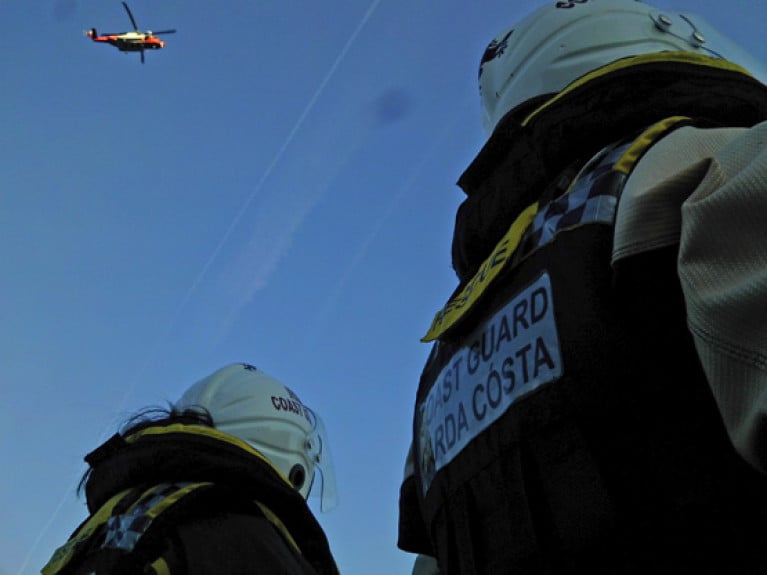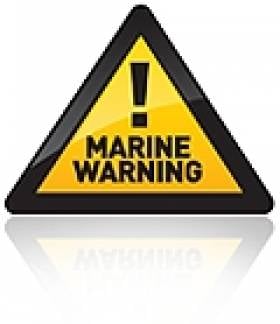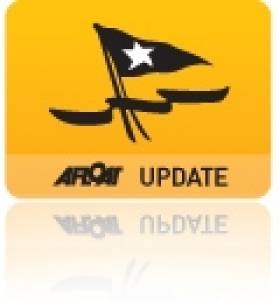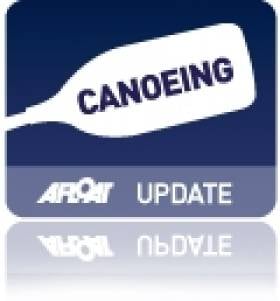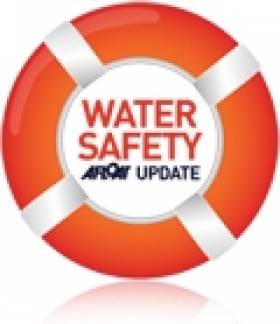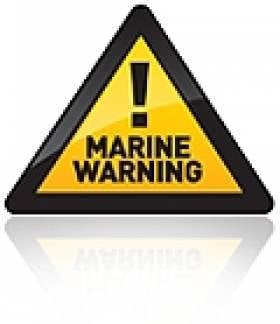Displaying items by tag: Rush
Skerries Lifeboat Responds to Reports of Small Boat in Difficulty
Skerries RNLI were tasked on Thursday morning (8 September) following emergency calls to Dublin Coast Guard reporting a small RIB with a person on board in difficulty off Rush beach.
Pagers were sounded shortly after 11.30am and the volunteers quickly launched the Atlantic 85 inshore lifeboat Louis Simson.
The lifeboat navigated around the headland at Red Island and through the islands before proceeding towards Rush, around 6km south of Skerries in north Co Dublin.
As they were approaching the area indicated by the concerned caller, the crew obtained a visual on the boat immediately. The lifeboat was positioned alongside the vessel and it was quickly determined that there was nobody on board and that the vessel was securely tied to a mooring.
Dublin Coast Guard on radio were satisfied that it was a false alarm with good intent. The lifeboat was stood down and returned to station in Skerries. Conditions at the time had a fForce 4-5 northeasterly wind with a moderately choppy sea.
Speaking about the callout, volunteer lifeboat press officer Gerry Canning said: “Thankfully in this instance it was a false alarm with good intent. The member of the public was genuinely concerned that someone was in trouble on the water and did the right thing in dialling 999 and asking for the coastguard.”
Skerries & Howth Lifeboats Launch to Sinking Vessel Off Rush
RNLI volunteers from Skerries and Howth were tasked to Rush in north Co Dublin on Wednesday afternoon (4 August) following a Pan-Pan VHF call from small fishing boat with two on board that was taking on water near the entrance to Rogerstown Estuary.
With the possibility of persons entering the water, both lifeboats launched shortly after 4.30pm and headed for Rogerstown at the maximum possible safe speed amid moderate conditions, with a Force 4 wind.
As the inshore lifeboat from Skerries arrived on scene, they could see that the casualty vessel had sunk on the bar at the entrance to Rogerstown Estuary.
There were people in the water in the vicinity of the boat where it was grounded, however the water was shallow enough for them to stand.
As lifeboat volunteers assessed the situation, Howth RNLI’s all-weather lifeboat arrived and stood by in case of needed assistance. A ground unit from Skerries Coast Guard was also in attendance.
It was quickly established that the two people from the boat had made it to safety on the beach, but then re-entered the water trying to lay out an anchor to secure the boat.
With the aid of the Skerries RNLI crew, they managed to turn the boat to bring the bow into the waves, which enabled them to bail the boat out and refloat it.
Noting the large number of windsurfers and kitesurfers in the area, Skerries’ helm decided that the boat presented a hazard and could potentially lead to a further callout if left where it was.
The vessel was subsequently taken under tow to the nearest safe harbour at the slipway in Rogerstown. The casualties returned to shore and with the immediate danger passed, Howth RNLI were stood down and returned to station.
Speaking about the callout, Skerries RNLI’s press officer Gerry Canning said: “There is always a great deal of concern when there is the possibility of someone ending up in the water.
“Thankfully on this occasion the boat grounded on a sand bar and they were able to make their way to safety. But it highlights that things can and do go wrong at sea and shows the value of carrying a means to call for help if needed.”
An 11-year-old boy is believed to have sustained a broken leg when he and a friend fell from a sea cliff in North Co Dublin yesterday (Tuesday 23 June).
As Independent.ie reports, Irish Coast Guard rescue teams from Howth and Skerries were tasked to the scene by the Martello tower at Drumanagh in Rush as was the SAR helicopter Rescue 116.
A spokesperson for Dublin Coast Guard said one boy sustained a head injury but was “walking wounded”, while the other had a suspected broken femur and was winched to the care of ambulance staff for transfer to hospital.
"They were very lucky not to be more seriously injured," the spokesperson said.
Elsewhere, the search is ongoing for a man missing on the Dingle Peninsula in Co Kerry, as RTÉ News reports.
John Cunningham (53) was last seen early on Saturday, 20 June, and locals believe he may have got into difficulty while retrieving lobster pots from an inlet on Dún Mór Head in stormy seas.
Puspure Star Attraction at Fingal Rowing Club Event
#Rowing: Fingal Rowing Club has announced on International Women’s Day that it will host an evening with Sanita Puspure, the reigning world champion in the women's single scull. The event will be held at Rush Sailing Club on April 28th and will focus on competitive rowing and a mindset for winning.
There will be a discussion on women in the sport of rowing and its growing popularity. There will also be a focus on health, fitness and endurance ahead of the Celtic Challenge and the Lambay Rowing Challenge, two long distance rowing races in which Fingal Rowing Club will be participating this year.
If time permits there will be a short Q&A following the talk. The bar will be open on the night and light refreshments will be available.
Tickets, which are €10, are available from Fingalrowingclub.ie
Body Recovered From Irish Sea Could Be Missing Rush Man
#Missing - A body recovered from the sea off north Co Dublin yesterday may be that of a man who went missing from Rush at Christmas.
The Irish Independent reports that a post-mortem is being carried out on the body to confirm if it is that of 24-year-old Paul Byrne, who was last seen in the early hours of Christmas Day.
Fishermen in the Irish Sea made the grim discovery in their nets yesterday and brought the body to Skerries harbour after 8pm.
The Irish Independent has more on the story HERE.
Marine Notice: Rock Placements Off Co Dublin & Buoy Deployments Off West Cast
#MARINE WARNING - The latest Marine Notices from the Department of Transport, Tourism and Sport (DTTAS) advise mariners to keep a look-out for rock placement off north Co Dublin and buoy placements off Co Mayo and Co Clare.
Operations were due to commence on Saturday 8 September at North Beach in Rush, Co Dublin for the placement of rocks offshore and in the Irish Sea for a period of 10-12 days weather permitting.
The works are being undertaken by DPFPV Tideway Rollingstone (call sign PHYR) and DPFPV Stornes (call sign PCKX) at various locations detailed in Marine Notice No 49 of 2012, a PDF of which is available to read or download HERE.
These vessels are operating on a 24-hour basis and will display appropriate days shapes and lights. They are also transmitting an AIS signal and will keep a listening watch on VHF Channel 16 for the duration of the works, which involve the deployment of survey ROVs and fall pipe that will restrict the vessels' movements. All mariners are instructed to give a wide berth.
Meanwhile off the west coast, ESB International has deployed two Waveroder buoys as positions near Achill Island in Co Mayo and Doonbeg in Co Clare.
The Achill buoy will be operational for a minumum of three months from now, while the Killard buoy will be operational for a minimum of 10 months having been recently relocated. Both are spherical and yellow in colour. All vessels are requested to give the buoys a wide berth.
Full details of their positions are included in Marine Notice No 50 of 2012, a PDF of which is available to read or download HERE.
Three New Dublin Bay Mermaid Dinghies Join the Clinker Fleet
#mermaid – Saturday 7th July last was an historic day at Rush Sailing Club with the launch of three new Dublin Bay Mermaids. Three members built the boats over the past two years: brothers Enda and Anthony (Ants) Weldon and Paddy Archer. Mermaids have been at the heart of Rush Sailing Club since members built four of them together in the 1950s. The prime mover of this project was Enda Weldon, who had built a Mermaid before. In fact Mermaids are in the Weldon blood, they still have their father's boat built in the 1960s, which along with the new ones, brings the family fleet to six!
Nationally, the active Mermaid fleet numbers around fifty boats, with around ten boats regularly competing in Rush. Designed by J. B. Kearney in 1932, these 17ft, clinker built dinghies are one of the oldest one-design classes, celebrating their eightieth birthday this year. The building of the three new boats, numbers 190, 191 and 192, created quite a 'buzz', with many turning up in the Weldon's farm shed to lend a hand throughout the long winter evenings.
In spite of the forecast for more grey weather on Saturday, the boats glistened in the sunshine of a glorious afternoon as they arrived in procession to a welcoming crowd on launch day (God must be a Mermaid sailor!). They were a splendid sight. The creamy Sitka spruce planking contrasts with rich mahogany sheer strakes, decks and transoms, trimmed with pale ash rubbing strakes and combings. The spruce was sourced through a boat builder in the South of England, whose father is in the timber business in Canada, and selects special logs for him. Timber of such quality is hard to find, there was hardly a knot or a shake to be found in the entire lot.
Naming the boats was left to the last minute, with Enda, choosing Mayhem for no. 190, followed by a more cautious Maybe for 191 by Paddy Archer. Anthony Weldon chose the more romantic Ariel for no. 192, inspired by many hours of reading stories to his daughter Ciara.
After a brief sail around the bay, the three skippers declared themselves contented with very well balanced boats. As to how competitive they prove to be, only time will tell – no two hand built wooden boats are exactly the same, and Mermaids are notoriously 'tweeky', with tiny adjustments to rig tension and mast positions proving crucial. What is certain is that they are a credit to the men that built them, and a proof that the skills of traditional boat building are not dead yet.
Father-Son Duo in Charity Paddle from Dublin to Donegal
#KAYAKING - A father-and-son duo from north Co Dublin will shortly embark on an epic kayak paddle from Dublin to Donegal, the Fingal Independent reports.
Dermot Higgins and his son Fionn, from Rush, will attempt to kayak from Dublin Port to the Atlantic Ocean at Ballyshannon - a distance of some 330km - by way of the Royal Canal, the River Shannon and Lough Erne.
The Higgins' - who believe they are the first to attempt such a feat - will be completely self-sufficuent for the duration of the challenge, which is hoped to raised funds for the Rush Open Organisation for Transition Status (ROOTS), a charity that intends to help communities reduce their carbon footprint and face up to environmental challenges by encouraging sustainability.
The Fingal Independent has more on the story HERE.
This Friday Last Day for 2012 Fingal Lifeguard Applicants
#WATER SAFETY - This coming Friday 30 March is the closing date for applications for Fingal County Council beach lifeguards for the 2012 summer season.
Lifeguard cover will be provided on Fingal beaches on weekdays and weekends 11am to 7pm from 2 July till the last week of August, depending on weather and staff levels.
Beaches and bathing places scheduled to be guarded this summer include Balbriggan (front beach), Skerries South, Loughskinny, Rush North and South Shores, Portrane (Tower Bay and The Brook), Donabate, Malahide, Portmarnock, Sutton (Burrow Road) and Howth (Claremount).
Applicants must be not less than 17 years of age on 1 May 2012. Application forms are available to download HERE.
Marine Notice: Rock Placement Offshore at Rush Beach
#MARINE NOTICE - The latest Marine Notice from the Department of Transport, Tourism and Sport (DTTAS) advises on rock placement operations offshore at North Beach in Rush, Co Dublin and in the Irish Sea.
Works commenced on 19 January to continue for around 14 days, subject to weather delays, undertaken by DPFPV Tideway Rollingstone (call sign PHYR) which is operating on a 24-hour basis.
The vessel is transmitting an AIS signal and will be keeping a listening watch on VHF Channel 16 at all times. It is also displaying appropriate day shapes and lights.
The works - which involve the deployment of survey ROV and fall pipe - will restrict the vessel's ability to manoeuvre, so all vessels in the vicinity (particular fishing boats) have been given warning to give the vessel and her equipment a wide berth.
Complete details including co-ordinates of work areas are included in Marine Notice No 4 of 2012, a PDF of which is available to read and download HERE.



























